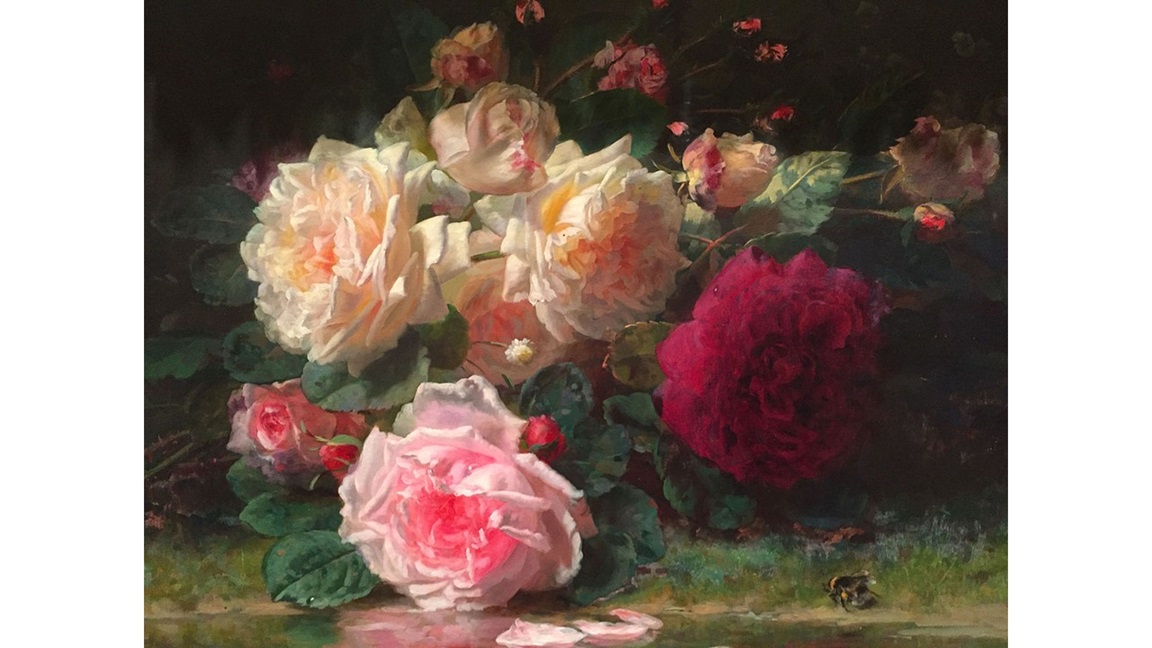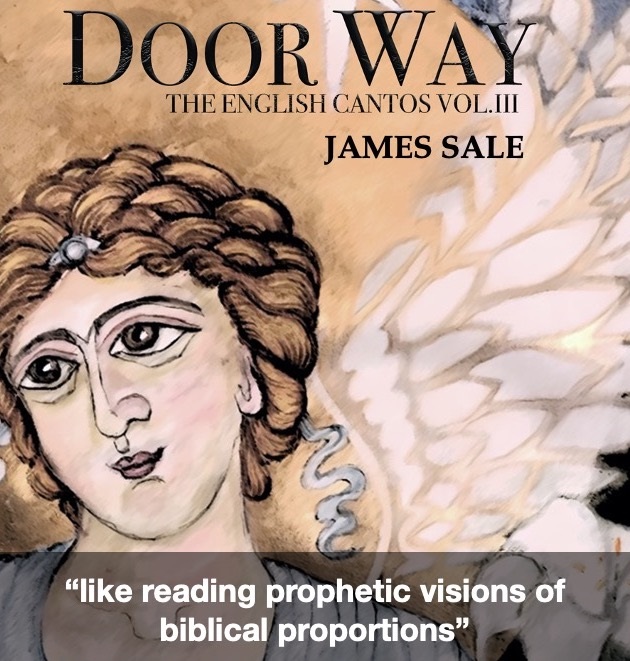.
Of all Creation, who am I
Who sins against Thee, Lord Most High?
Of all that crawl, of those who creep,
No one has ever sunk so deep.
Of those who swim and those who fly,
Least of them all, this sinner, I.
There’s nothing else can go so low
Yet still You love me, Lord I know.
Beneath the worm—his conscience clear—
Not even he has tunneled here.
Worst of them all, I can’t deny
Yet still You love me, Lord Most High.
The wise old owl, the mighty bear,
Neither would dare to venture there.
.
.
Joe Tessitore is a retired New York City resident and poet.


















Joe, your careful wording here makes this prayer not just a sinner’s lamenting mea culpa, but an effective guided meditation. There is progress first from “have sunk” (1st quatrain) to “can go” (2nd quatrain); the sinner is no longer in the utter depths, but has climbed up through his recognition of the Lord’s love, first expressed in the 2nd quatrain. That recognition of divine love is repeated in the 3rd quatrain, even though the sinner is still “here,” where he forthrightly says he can’t deny he is worst of all creatures because of his sin. With this confession from heart and lips, the sinner makes the most remarkable progress in the couplet, moving away from the 3rd quatrain lowly “here,” which in the couplet becomes “there” (a place where owl and bear wouldn’t go). But it can only be “there” if the sinner is no longer “there.”
Lovely way of looking at creation and rising back to where the animals are–and even higher, perhaps, as their knowledge of God’s love is not something they can use for intellectual reflection, or expression in words. Thank you!
You see so much, Margaret, certainly so much more than I do!
Thank you for sharing your beautiful insights with us – what more can a poet ask for?
I love the gentle yet effective rhyming in this heartfelt prayer to the Lord. Particularly appealing is your imaginative imagery of the pure and simple creatures of the earth. The narrator’s humility described within this context is touching and introspective.
You gave me the wise old owl (and so the closing couplet) at the very last minute.
Thank you, Corey.
I noticed that, Joe. I, too, have had owls on my mind these past few days.
As Corey says, the heartfelt-ness (!) of the message and the rhythmic nature of a prayer comes through at the fore amidst the strictures of the sonnet form. Not many poets could manage that, to be perfectly honest.
Thank you Paul, very much!
Beautifully said, utterly moving.
As is your comment!
Thank you Rohini, very much!
Joe, I wish I could analyze a poem as Margaret does, but alas! . . .
I love your poem, but to me it is not just a Lentin poem. The Christian traditions I’ve been associated with do not observe Lent, but even if I were to observe it, your prayer is rather an everyday reminder of what God has done through Christ for me. I recently pondered the words of Jesus to Judas to the effect that it would have been better if the latter had not been born. It occurred to me that this could be said of everyone who rejects Christ, even if his rejection appears less direct than that of Judas. And because I was in that category till God shed his grace on me (undeservedly!), the horrifying truth becomes a miraculous thing of eternal beauty. Thanks for the beautiful reminder!
There is a theory, Jeff, that Judas (a Zealot) wanted Jesus to exercise his divine power to overthrow the Romans. Alas, for him, that was not the plan, but without his perfidy it would have been a longer road to the crucifixion, upon which all depended and still depends. It’s not my theory. See I, Judas by Taylor Caldwell. Just a thought.
Oh, I also believe that was a major part of Judas’s enterprise.
Oddly enough, I recently wrote a poem called “I, Judas”!
I’ve heard it said that the closer we are to the Lord, the more aware we are of our own sin. I’ve found this true in my own life. My favorite line is, “Beneath the worm–his conscience clear–not even he has tunneled here.” Powerful analogy!
Thank you, Bethany and Jeff.
This poem was a wonderful surprise for me – I didn’t attribute all that much to it, and yet it’s touched people rather deeply.
This is a lovely meditation, Joe. I would say that you and I are fellow worms, but since worms have no free will they are sinless, unlike we who know full well what we do.
Just a note for future reference: In the last line of the second stanza, there should be a comma after “Lord.” The addressee of a statement should be bracketed by two commas. No worries, though — no one will have missed what you meant to write, and you wrote it well.
Thanks for the comment and the punctuation tip, C.B.. As I write, I’m inclined toward the two commas, but then wonder if I’m not over-punctuating, especially in this age of minimalism.
A friend complained to me that he texted his son and in reply got “k”, not even “OK”.
P.S. I’m sure you caught the two periods at the end of my first sentence.
The commas are used to provide clarity. Otherwise “Lord I know” is ambiguous. A comma always follows the name of the addressee.
I missed the two periods; it was probably corrected before I got to read the poem.
Joe – I’m not sure which is better, your poem or Margaret’s exegesis but I wish I had written them both. A sonnet in tetrameter is unusual and you have carried this one off so remarkably well. When I have tried this the words have always tended to gather pace and run away with me (or without me). A very useful devotional aid as well as a good poem. Laus Deus semper.
Joe, your prayer in sonnet form is just so smooth and meaningful. It is a piece straight from the heart, which cannot help but touch the heart of readers.
As you and Peter have touched mine.
Joe, I love the way you have captured the humility of man in the face of a loving and all-powerful God. Your beautiful and timely poem offers some much needed perspective in today’s insane and cruel world. Thank you very much.
Thank you, Susan.
I had no idea it was going to touch people the way it has.
I was surprised when Evan told me he was going to run it.
Praise Him from whom comes all good things.
Hi Joe, just add me to your list of admirers. A wonderful in-depth write of
exquisite perception and excellent precision. Thank you, love ya, an’ya